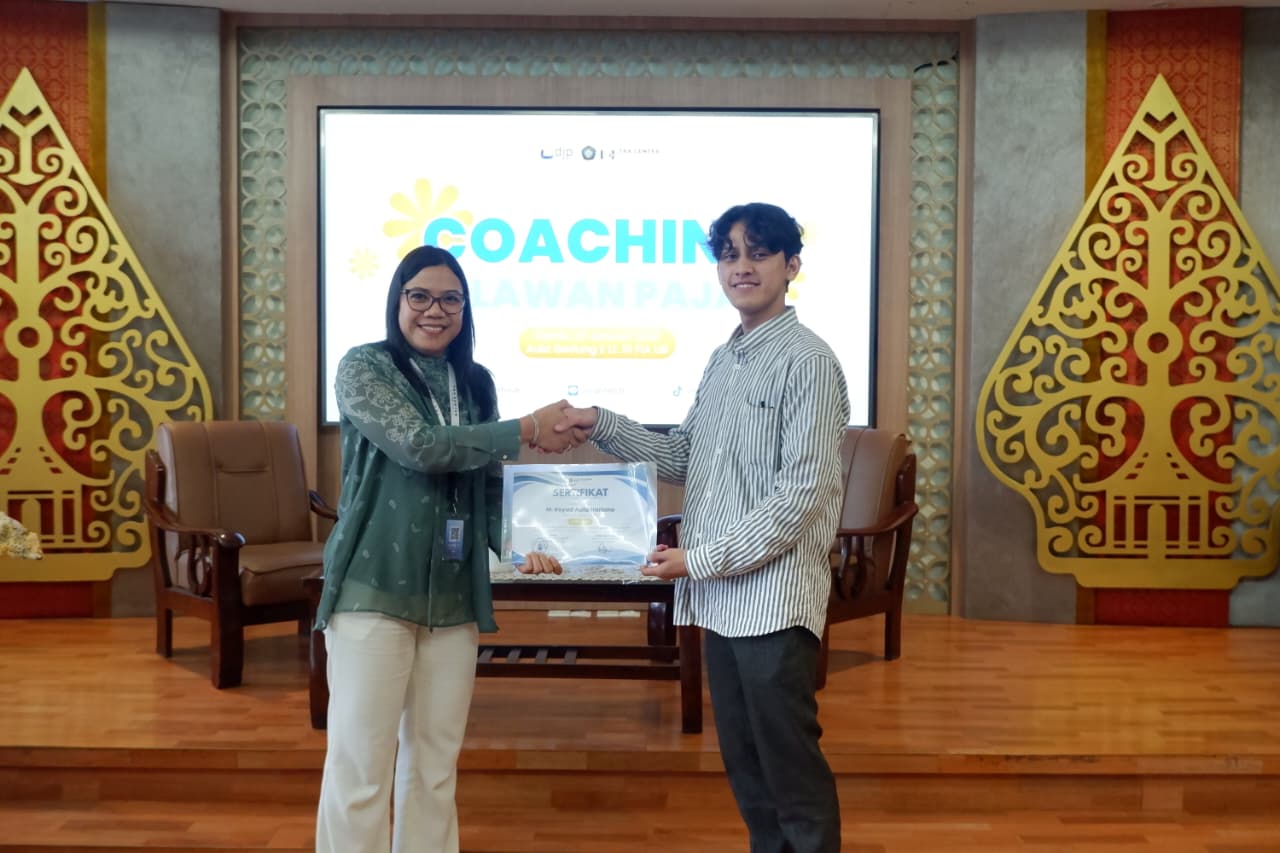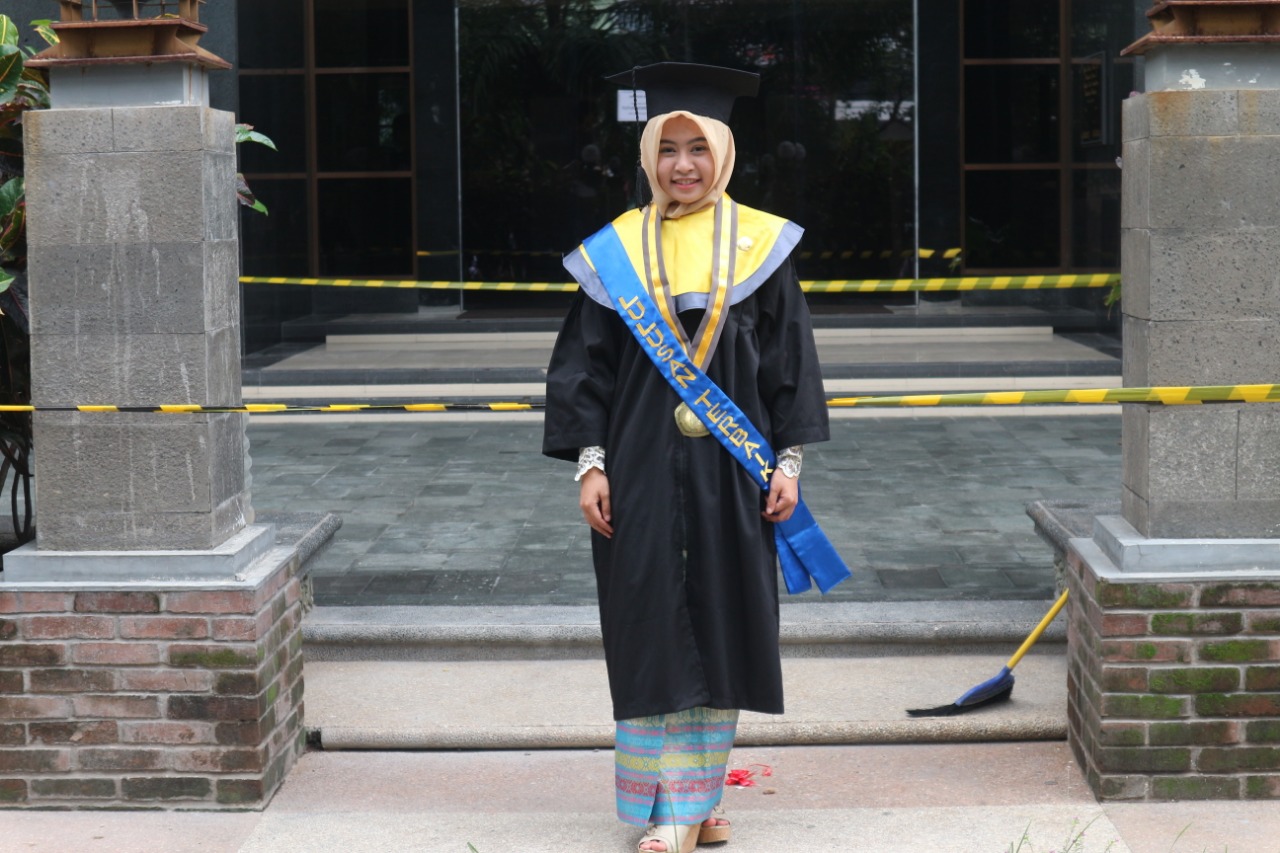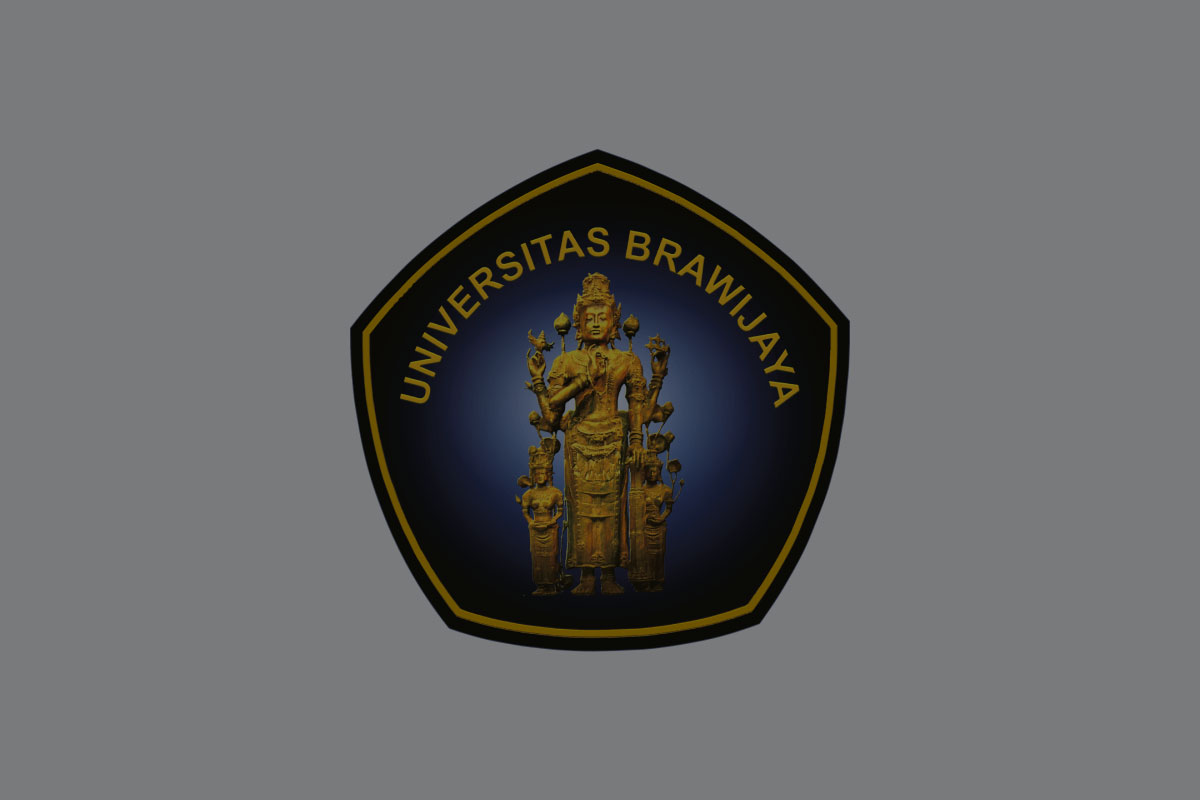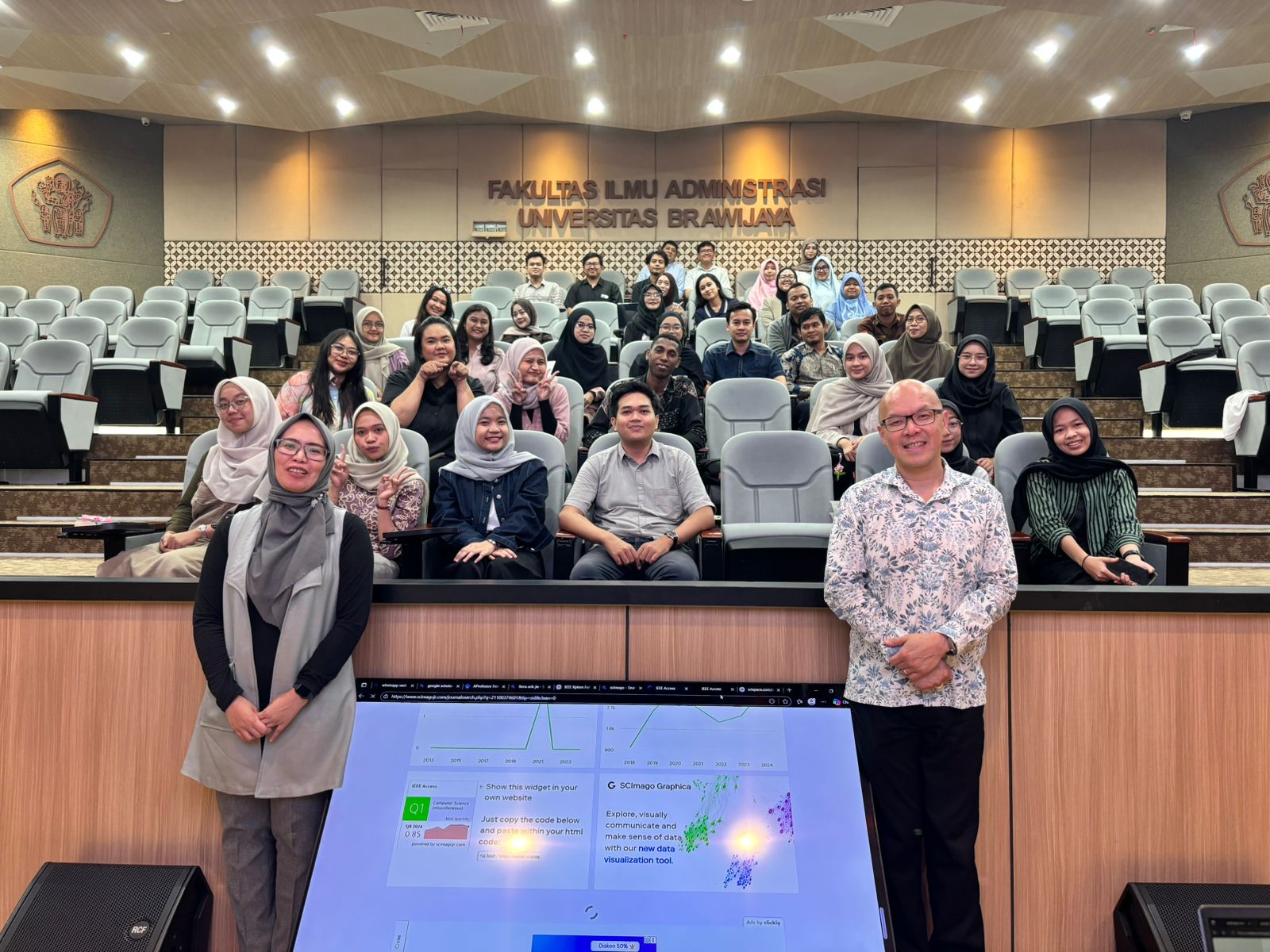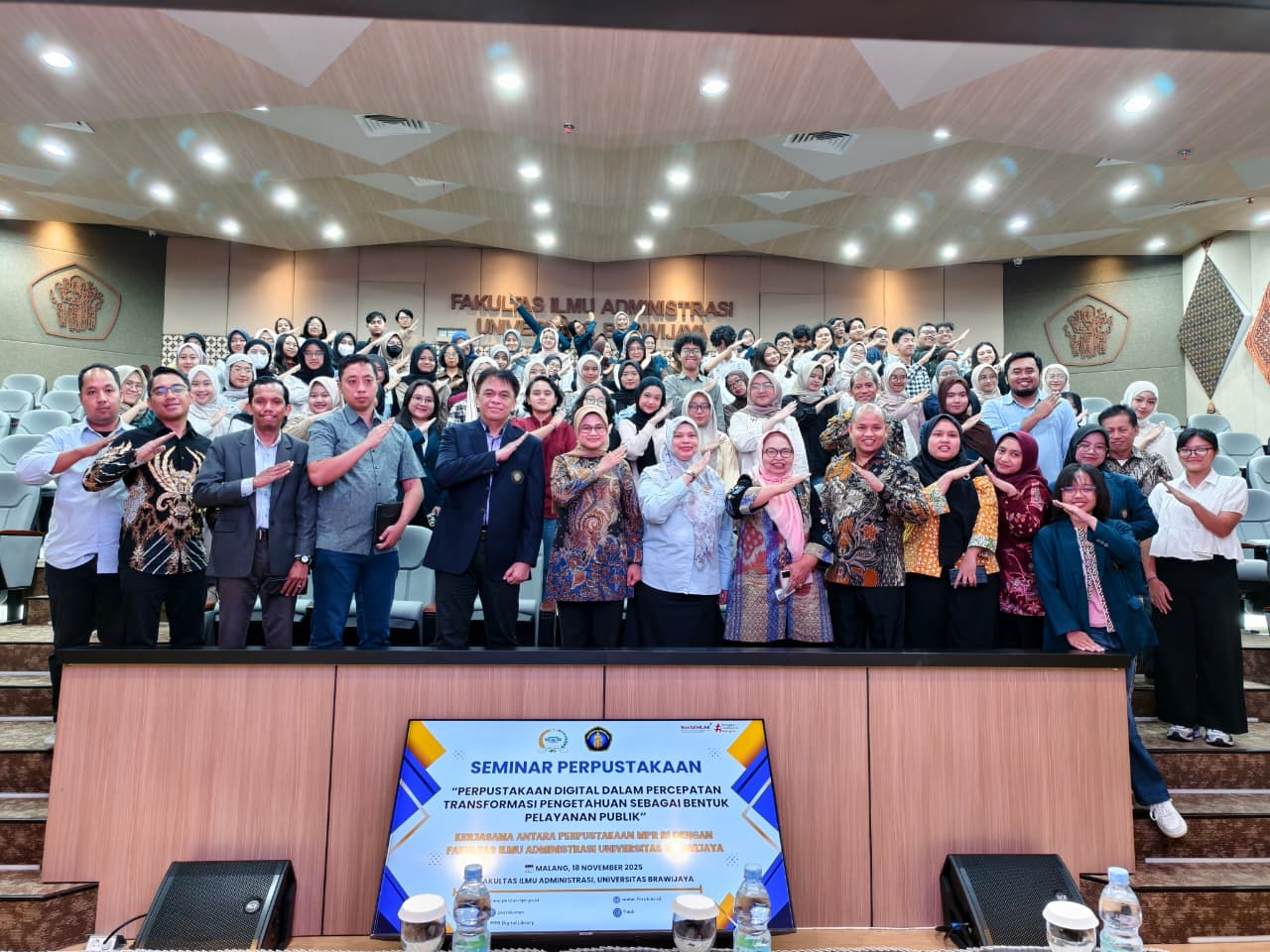Unlike usual, today, Wednesday (17/12), the Introduction to Archiving class got the special opportunity to learn directly from Prof. Jungyeoun Lee, an expert in Library and Information Science from South Korea. Accompanied by Muhammad Rosyihan Hendrawan, the lecturer in charge of the course, for about one hour Lee explained the ins and outs of the world of literature in the context of Indonesia, South Korea, and the world in general.
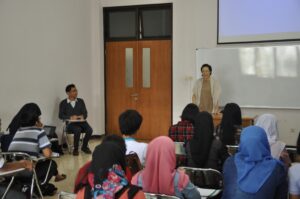
On that occasion, Lee gave more opportunities to students to ask anything they wanted to know about the world of archiving and documentation. For example, he was asked what prompted him to pursue library science. Lee replied that with this knowledge he felt he could better serve more people. He wants to share good archiving methods that can be passed on to the next generation so that people can easily find the information they want.
Regarding the prospects for the profession as a librarian, he explained that basically the position of librarians in Indonesia and South Korea is the same, and the two cannot be compared with the high respect given by people in Western countries to librarians. It's just that, he said that to become a librarian in South Korea, a scholar must first obtain a certificate of professional expertise. In fact, to become a librarian at a higher level, higher education is also required. “If you want to be a librarian at a university, you have to have a master's degree. However, if you want to work at the national library, you have to have a doctoral degree," he said Visiting Professor in the Department of Library and Information Science, University of Indonesia.
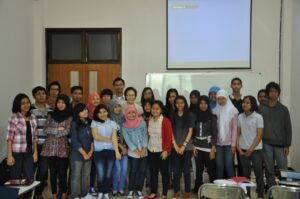
At the end of the lecture, he gave encouragement to students, as well as to answer questions, to always try to increase Indonesian people's interest in reading through the library. He understands that Indonesian people are more proficient in the oral tradition than in the reading tradition. “Koreans love to read books because their parents forced them to read books since they were young. Reading books can develop the mind and creativity. If you want to increase Indonesian reading interest, start from the youngest generation and do it through the library. Make programs that attract children to read," explained the lecturer who started to speak Indonesian fluently. (ALA/FIA)

